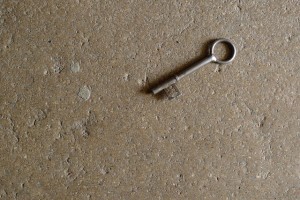answer, reply, response ![]()
[noun]
[het ant-woord, de ant-woor-den]
 An “antwoord” is a verbal or written reaction: an answer. “Antwoord” is composed of “ant” and “woord” of which the latter translates to “word”. “Ant” is probably from “anti”…
An “antwoord” is a verbal or written reaction: an answer. “Antwoord” is composed of “ant” and “woord” of which the latter translates to “word”. “Ant” is probably from “anti”…
“To answer” translates to either “antwoorden” (intransitive verb), “beantwoorden” (transitive verb), or “antwoord geven” (lit.: to give answer).
Examples:
– “Geef antwoord!”
(“Answer me!”)
– “Weet jij het antwoord op dit raadsel?”
(“Do you know the answer to this
riddle?”)
– “Je antwoord bevalt me niet.” – “Misschien hebben we een misverstand hier…”
(“I don’t like your answer.” – Maybe we have a misunderstanding here…” Lit.: “Your answer does not please me.”)
– “Frank krijgt nooit antwoord op de liefdesbrieven die hij schrijft…hij is een beetje zielig…”
(“Frank never gets an answer to the love letters he writes…he’s a bit pathetic…”)
– “Ik heb het antwoord op al je vragen!”
(“I have the answer to all your questions!”)
– “Vraag & antwoord.”
(“Question & answer.”)
Expressions:
– “Op antwoord wachten”: to wait for an answer. See also Extra.
– “Het antwoord schuldig (moeten) blijven”: to not be able to give an
answer / to not know the answer.
Example:
– “Ik moet je het antwoord helaas schuldig blijven.” – “Het geeft niet.”
(“I’m afraid I don’t know the answer.” – “It doesn’t matter.”)
Related words:
– Antwoordapparaat: answering machine [noun] [het antwoordapparaat, de antwoordapparaten].
– Vraag: question [noun] [de vraag, de vragen].
– Vragen: to ask [verb] [vragen, vroeg, h. gevraagd].
Example:
– “Pardon, mag ik u iets vragen?” – “Vanzelfsprekend.”
(“Excuse me, may I ask you something?” –
“Naturally.”)
Extra:
In Dutch schools, the following memory aid used to be taught to remember the correct order of mathematical operations:
“Meneer Van Dale Wacht Op Antwoord”
M = “Machtsverheffen”: exponents (lit.: to raise to a power).
V = “Vermenigvuldigen”: multiplication (lit.: to multiply).
D = “Delen”: division (lit.: to divide).
W = “Worteltrekken”: roots (lit.: to extract a root).
O = “Optellen”: addition (lit.: to add).
A = “Aftrekken”: subtraction (lit.: to subtract).
Currently, the order that is taught is:
1. (haakjes) – brackets
2. machtsverheffen en worteltrekken – exponents and roots.
3. vermenigvuldigen en delen – multiplication and division.
4. optellen en aftrekken – addition and subtraction.
Lliterally “Meneer Van Dale Wacht Op Antwoord” translates to “Mister
Van Dale is waiting for an answer”. Van Dale
is also the name a well-known and authoritative dictionary of the Dutch
language.

 A “prieel” is a (half-)open garden house or (roofed) terrace: a gazebo. Fully closed garden houses are called “tuinhuisjes” and are very popular in the Netherlands. A “prieel” is rather associated with big gardens, grand sea views and the wealthy upper class…
A “prieel” is a (half-)open garden house or (roofed) terrace: a gazebo. Fully closed garden houses are called “tuinhuisjes” and are very popular in the Netherlands. A “prieel” is rather associated with big gardens, grand sea views and the wealthy upper class… “Kwijt” is a predicate adjective, which means that it modifies the subject like other descriptive adjectives, but it must follow a linking verb in a sentence, mostly (a conjugation of) the verb “zijn” (:to be).
“Kwijt” is a predicate adjective, which means that it modifies the subject like other descriptive adjectives, but it must follow a linking verb in a sentence, mostly (a conjugation of) the verb “zijn” (:to be).